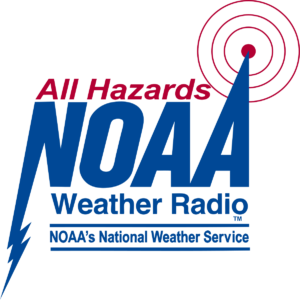 It was ten o’clock in the morning last Saturday when I turned my car from South Jefferson Avenue onto the narrow road beside the iconic FAIR GROUNDS OF PUTNAM COUNTY metal sign. A couple of minutes later, I joined the long line of vehicles creeping west on Veteran’s Drive. We were waiting to turn right onto Walnut and then right into the fairground parking lot. Eventually, I’d be handed a free NOAA emergency weather radio.
It was ten o’clock in the morning last Saturday when I turned my car from South Jefferson Avenue onto the narrow road beside the iconic FAIR GROUNDS OF PUTNAM COUNTY metal sign. A couple of minutes later, I joined the long line of vehicles creeping west on Veteran’s Drive. We were waiting to turn right onto Walnut and then right into the fairground parking lot. Eventually, I’d be handed a free NOAA emergency weather radio.
If there were any left.
Thirty minutes later, I wasn’t much closer to the traffic light a hundred yards ahead. But I could see, to my right, a line of cars that had made it into the fairground parking lot. They were moving a good deal more quickly than I was.
I had expected a wait. Publicity about the giveaway, funded through grants from FEMA and TEMA, had been excellent. Like most of us, I knew that the anniversary of the EF-4 tornado that touched down in Putnam County on March 3, 2020 and took nineteen lives was upon us. I didn’t know if the date of the radio distribution was a coincidence or had been planned for that anniversary. Regardless, it seemed a fitting time to be giving away weather radios.
I live east of Cookeville, beyond the city limits, and received no warning–by siren or cell phone–in those early morning hours four years ago that a tornado was coming. I was to serve as the election officer that day at the Double Springs precinct, located then at Upperman Middle School in Baxter. One of my poll workers called before daybreak to tell me she couldn’t make it in. “Damage from the tornado has blocked our road,” she said.
“Tornado?” I asked. You likely know the rest.
That memory was heavy on my mind as I sat in line Saturday. I needed to be somewhere clear across town no later than11:30 and wondered if I’d make it in time. I also began to wonder if it made sense for me to even own a weather radio. Technology isn’t my strong suit. Could I figure out how to work the thing?
As I waited, I listened to an audiobook on the Libby app (a technology that, thankfully, I have mastered). The book was “The More of Less” by Joshua Becker, a minimalist who encourages his readers to purge their homes and lives of unnecessary stuff. So…did I really need a NOAA radio? Might I be better off installing a weather warning app on my phone and figuring out how to make it override my “silent at bedtime” setting? Or could I simply choose to sleep in my basement whenever meteorologists predicted severe weather?
And even if I did need a NOAA weather radio, wouldn’t buying one outright make more sense than squandering an entire morning waiting in line to get a free one? I paused my book to search online for radios and found several that cost less than 20 dollars. It seemed a small price to pay to save a couple of hours, especially considering that I was burning three-dollar-a-gallon gas.
As I waited, barely moving, I also pondered the other big thing that happened in 2020, not long after the tornado. I’m talking about Covid, of course, and about the long lines of traffic many of us sat in near Hyder-Burks Pavilion, waiting to get a vaccine when they finally became available.
All that thinking made my head hurt. I soon began to regret the two cups of coffee I’d foolishly consumed before heading for town. A restroom was not a possibility if I wanted to keep my spot. So I pulled out of line, turned around and headed for my next appointment, happy for those who–unlike me—were likely to score a free NOAA radio.
I hope and pray we never need to hear a tornado warning again.
(March 9, 2024)